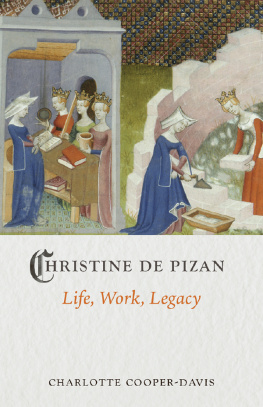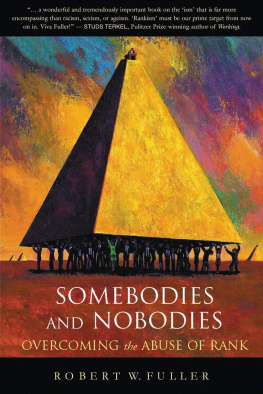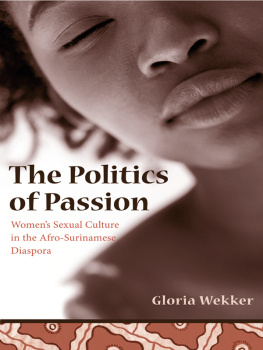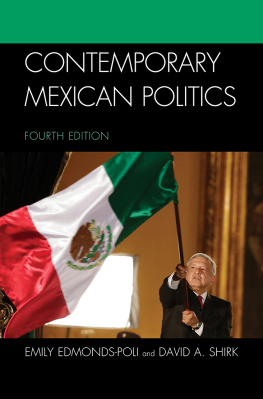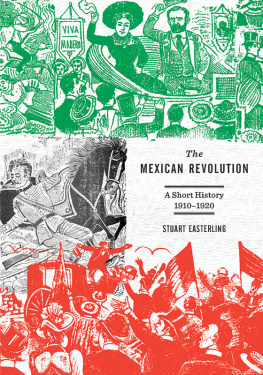Cover Art: Carmen Robles, soldadera, Mxico 1913. #186387 CONACULTA. INAH.SINAFO.FN.MXICO, Archivo Casasola. Dry gelatin plate.
Published by State University of New York Press, Albany
2017 State University of New York
All rights reserved
Printed in the United States of America
No part of this book may be used or reproduced in any manner whatsoever without written permission. No part of this book may be stored in a retrieval system or transmitted in any form or by any means including electronic, electrostatic, magnetic tape, mechanical, photocopying, recording, or otherwise without the prior permission in writing of the publisher.
For information, contact State University of New York Press, Albany, NY
www.sunypress.edu
Production, Diane Ganeles
Marketing, Michael Campochiaro
Library of Congress Cataloging-in-Publication Data
Names: Arce, B. Christine, 1974 author.
Title: Mxicos nobodies : the cultural legacy of the soldadera and Afro-Mexican women / B. Christine Arce.
Description: Albany : State University of New York Press, 2017. | Series: SUNY series, Genders in the global South | Includes bibliographical references and index.
Identifiers: LCCN 2016021650 (print) | LCCN 2016053183 (ebook) | ISBN 9781438463575 (hardcover : alkaline paper) | ISBN 9781438463599 (e-book)
Subjects: LCSH: WomenMexicoHistory. | Women, BlackMexicoHistory. | Racially mixed womenMexicoHistory. | Women soldiersMexicoHistory. | Women revolutionariesMexicoHistory. | Sex roleMexicoHistory. | MexicoRace relations. | Women in art. | Blacks in art. | Art and societyMexicoHistory.
Classification: LCC HQ1462.A63 2017 (print) | LCC HQ1462 (ebook) | DDC 305.40972dc23
LC record available at https://lccn.loc.gov/2016021650
10 9 8 7 6 5 4 3 2 1
I dedicate this book to the spirit and living memory of my father, Simen Arce Gonzlez, who did not make it to the end, but tried his best; to my grandmother Carmen Gonzlez Razo, who is now reunited with her son, and was as strong and resilient as the soldaderas; and to my best friend, grandma Christine Dow Retelsdorf.
Acknowledgments
This book would have been impossible without the stalwart support of my family, my incredible mother Bridget, father Simen, sister Lisa Carmen, grandmother Christine, partner Carlos, and son Santiago. My mother and Lisa rearranged their lives in order to take turns watching my son so that I could work, a sacrifice I will never forget, and without which the book in its present form would have been impossible. I am proud, indeed honored, by how many people contributed to this project and whose influence and acuity helped me to formulate the ideas presented here, and I apologize to anyone who is not mentioned by name. First and foremost, Francine Masiello and Jos Rabasa both saw this project evolve from a dissertation into the book you now hold. Francines love of poetry wove its way into my readings, as did her keen perspective and ability to pull apart incomplete ideas, and equally amazing talent to help you build them back up again. She is the epitome of what it means to be a mentor, guide, interlocutor, and friend. I continue to learn from her grace, robust humor, and creativity. Joss intellectual generosity and passion, his theories of knowledge and subalternity were seminal to the shape my work would take and some of the core ideas I put forth in this book. I am forever in their debt.
This book passed through the hands of many brilliant people and in the course of its itinerancy improved it in innumerable ways. Id like to thank George Ydice for his careful and painstaking reading of every chapter, providing rigorous insights and necessary criticisms; he too was an exemplary mentor, colleague, and amazing friend whose dedication and support has been a source of admiration. All of my colleagues at the University of Miami deserve special mention; but in particular, Subha Xavier, Lillian Manzor, Elena Grau-Lleveria, Gema Prez Snchez, Cristina Civantos, Andrew Lynch, Yvonne Gavela, Eduardo Negueruela, Joel Nickels, Donette Francis, and Tracy Devine Guzmn. I am indebted to Doris Careaga and Sara Gusky for their fine work, which, in turn, kept me inspired. Infinite thanks to my friend, comadre, and interlocutor Anna Deeny Morales for reading many iterations of the introduction and providing her creative, poetic, and unrelenting eye. My gratitude to the fierce women of SWAG who helped me recover my voice and situate myself in the processDania Abreu-Torres, Michelle Nasser, and the unstoppable Zeli Rivas. All inspiring women of color whose scholarship and insights were critical for the development of this book over the course of many years of lucha y comadraje.
A heartfelt thanks to John Sullivan of IDIEZ, whose sociolinguistic insights on Nhuatl and indigenous thought in general provided the armature for many of the ideas present in this book. Many programs and institutions deserve special mention for supporting the research that went into this project: the UC Berkeley Department of Spanish and Portuguese, the UC Berkeley Center for Race and Gender for a fellowship that allowed me to conduct the initial research for the second part of the book, the University of Miami Center for the Humanities faculty fellowship that allowed me to streamline the manuscript, and the members of the group who read early versions of the first part of the book. Thanks to John Funchion for turning me on to Rancire and to Tim Watson for his careful comments. In addition, the University of Miami Max Orovitz and Provost research fellowship allowed me to travel on two separate occasions to conduct research in Mxico at the Archivo General de la Nacin.
Infinite gratitude to Rafael Figueroa who made all of the images of Toa la Negra available to me in addition to helping me locate obscure material; he is a wonderful collaborator and friend. Many thanks to Julio Ramos for his generous, thorough, and invaluable readings of is an honor for me to be included in their series. Warm thanks to my friends Jessica Munoz and Lee Davis for reading early versions of the first chapters and for their personal support during this process. For the encouragement of all my friends, who either sent me messages or provided childcare so I could squeeze in a few more hours, your help will never be forgotten: Karina Xavier, Claudia Pozo, Marina Crouse, Megan Garber, Carla and Tom, Joy Regueira, Vicki Woods, Sweetjoy Hachuela, Caroline Faria, Mitzi Carter, and Jason and Leilani Pearl. I thank my grandmother and tocaya Christine, who never stopped believing in me even when she thought I was too wordy; my grandmother Carmen, whose spirit I felt in my research; and my father, whose love, commitment, and knowledge inspired everything I did in this book, even if he didnt realize it. He was unable to see it finished, but I know he loved helping me through itaccompanying me on research trips to Veracruz, and listening to several of my conference talks with my dedicated mother. And I thank Carlos, who has been there from the beginning and seen it through to the endhis insights are in every chapter and his care of our son made it possible. Finally, I thank the light of my life, my son Santiago Emiliano, who has patiently waited through the first four years of his life to see this finished and finally get my full attention.




